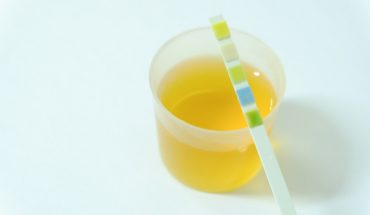Safe and effective – wound healing preparation reaches clinical phase II: APO-2 (Aposec) is a secretome-based trial preparation derived from stressed peripheral blood mononuclear cells.
APO-2 was shown to be safe and effective in a multinational Phase I study in patients with diabetic foot ulcers (non-healing foot ulcers). The Data Safety Monitoring Board has therefore recommended continuation into a Phase II clinical trial. This represents a major success for the wound healing preparation developed at MedUni Vienna. APO-2 contains the secretome (released substances) of stressed blood mononuclear cells, a current waste product from transfusion units. This new technology harnesses the power of these blood cells, immunology and biotechnology to overcome tissue damage and wound healing disorders. It is produced by the Blood Donor Service of the Upper Austria Red Cross in compliance with Good Manufacturing Practice.
Secretome-based wound healing treatment for diabetic foot ulcersThe MARSYAS II clinical trial is the first study to test a secretome-based wound healing treatment in patients with diabetic foot ulcers. APO-2 is applied three times a week for four consecutive weeks. In the main phase (Phase II) of the clinical trial, three different doses of APO-2 are being evaluated. Clinical-stage company Aposcience AG, a MedUni Vienna spin-off, is conducting the study at an international level together with partners FGK CRO: FGK Clinical Research (fgk-cro.de) GmbH (Munich, Germany) and GBA Group Pharma (gba-group.com) (Vienna).
“Our Phase I study has confirmed that this novel agent is safe for patients with diabetic foot ulcers. Only the data from the Phase II trial will show whether the massive investment in preclinical research and product science has paid off,” says Hendrik Jan Ankersmit from the Department of Thoracic Surgery at MedUni Vienna and Vienna General Hospital. The Data Safety Monitoring Board (DSMB) unanimously recommended proceeding with the main phase of the MARSYAS II trial.
The burden of diabetes
According to the International Diabetes Federation, 8.9% of adults aged between 20 to 79 in Europe suffered from diabetes in 2019, equating tor 59.3 million people. Another 296,500 children and adolescents under the age of 20 are living with type 1 diabetes. Diabetes is among the top ten causes of non-communicable disease-related deaths. Significant complications of diabetes mellitus are impaired wound healing and the development of foot ulcers. Foot ulcers that do not heal can lead to amputation and premature death.
Public-private partnership with Aposcience AG
Aposcience AG is a privately run Austrian clinical-stage company founded by Hendrik Jan Ankersmit in 2008. It was founded as a spin-off of the Department of Surgery of the Medical University of Vienna. The close collaboration between Aposcience and the Medical University of Vienna was funded by the Christian Doppler Society, the Austrian Research Promotion Agency FFG and Vienna Business Agency and is a good example of a public-private partnership.
Medical University of Vienna – short profileMedical University of Vienna (MedUni Vienna) is one of the most traditional medical education and research facilities in Europe. With almost 8,000 students, it is currently the largest medical training centre in the German-speaking countries. With 6,000 employees, 30 departments and two clinical institutes, 12 medical theory centres and numerous highly specialised laboratories, it is also one of Europe’s leading research establishments in the biomedical sector.
- Gut microbiome could delay onset of type 1 diabetes - 3rd April 2025
- The da Vinci 5 Robot Is Set To Transform Bariatric Care: - 31st March 2025
- Beyond money: the hidden drivers fuelling child food insecurity - 31st March 2025






